Over the past decades, high fructose corn syrup has emerged as a better alternative to sugar. It’s found in thousands of foods, from cereals and fruit juices to low-carb chocolate and protein bars.
Historical Medicinal Uses of Honey

Historical Medicinal Uses of Honey
Honey has been used for thousands of years as a food and medicine. Our hunter-gatherer ancestors ate honey for greater energy and stamina. The ancient Sumerians used it for healing eye and ear disorders. They were also applying honey on wounds and burns to speed up healing. This superfood has been also found in ancient Egyptian tombs. Today, its health benefits are widely recognized by the medical community.
This healing food has stood the test of time. From migraine relief to wound healing and cough suppression, its beneficial properties are backed up by studies. Let’s see the most popular medicinal uses of honey and its health benefits:
Boosts Your Energy
Raw honey is made up of water, natural sugars, pollen, vitamins, minerals, and protein. Fructose accounts for about 80 percent of its content. This superfood provides a quick source of energy, which makes it ideal as a pre- and post-workout treat. Studies conducted on athletes have found that honey fuels sports performance just as well as energy gels.
Prevents and Treats Infections
This sweet treat has been used since ancient times as a natural cure for infections. When consumed regularly, it strengthens your immune system and kills pathogens. It’s particularly effective against Staphylococcus Aureus, Enterococcal, Salmonella, and Meningococcal meningitis infections.
Relieves Constipation
The ancient Greeks used honey for its laxative action. Back then, this superfood was considered a natural remedy for gout, pain, sore throat, cough, alopecia and acute fevers. Modern research supports these claims. Due to its moisturizing properties, honey keeps you regular and relieves constipation. It’s also an excellent digestive tonic and may help prevent stomach ulcers.
Cures Pollen Allergies
If you’re struggling with allergies, eat honey! According to a 2013 study, this healing food relieves allergy symptoms and prevents flare-ups. It also increases your body’s tolerance to bee pollen and other common allergens. Basically, it acts like an allergy shot. One tablespoon of honey a day will keep the doctor away.
Fights Oxidative Damage
Honey is an excellent source of antioxidants and nutraceuticals. These compounds help remove free radicals from your body and counteract their harmful effects. In the long run, honey can reduce your risk of cancer, premature aging, heart disease, and immune disorders. It can be also applied on the skin to minimize wrinkles and reverse the signs of aging.
What’s your favorite way to use honey? Are you getting enough of this superfood?









No comments yet.